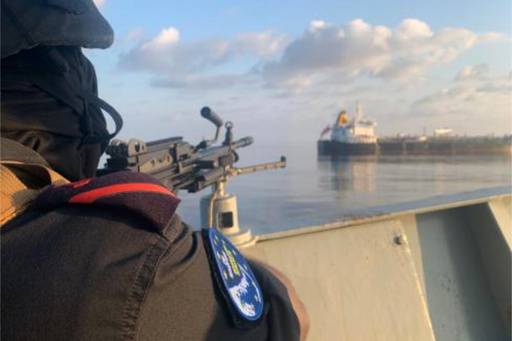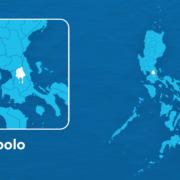Experts fear resurgence of sea piracy off Somalia

LAGOS—Pirates off the coasts of Somalia have hijacked a commercial vessel for the first time in 18 months, raising fears of a resurgence of armed attacks along the coasts of Somalia.
This week, the pirates launched multiple attacks against vessels before successfully boarding the Malta-flagged Hellas Aphrodite, which was en route to India from South Africa ferrying gasoline, according to the ship’s owner, Latsco Marine Management Inc. EU Naval reached the ship on Friday and found all crew members safe.
The last time the pirates boarded a ship was in May 2024, when they hijacked the Liberian-flagged vessel Basilisk around 703 kilometers (380 nautical miles) east of Mogadishu. The United Kingdom Maritime Trade Operations Center said there was another close incident in the area on Friday, but the ship outran the pirate vessel.
‘Less deterrence’
Experts say Thursday’s seizure might be a prelude to more assaults because conditions along the coasts have changed due to the redistribution of naval forces and a weakened government in Mogadishu, which is battling armed groups offshore.
“What we are seeing is also increasing reports of pirate groups hijacking vessels and recruiting new pirates, as well as arming themselves,” Timothy Walker, a senior maritime researcher at the Institute of Security Studies, told The Associated Press (AP).
“Those were major signs that attacks were likely, with the fact that there was less deterrence than before, and some have taken the chance and succeeded with some of the attacks.”
Here is what to know about the pirates and their impact on maritime commerce and security:
Through the 1980s, Somalia experienced a brutal civil war that briefly stopped in 1991. The war, which arose from opposition to the Siad Barre-led military junta, fractured the East African nation to this day, with several armed groups controlling parts of the country.
The war led to the disbandment of the Somali Navy, leaving the country’s territorial waters undefended.
Dumping ground
Foreign vessels took advantage of the opportunity to dump industrial waste off the Somali coast. Local fishermen banded together to protect their waters, evolving into armed attacks which escalated in the early 2000s, involving kidnappings of crew members until shipowners paid ransoms.
Incidence of piracy peaked in 2011 with a high of 243 hijacks, but has since then decreased.
While there are no definite figures on how much has been paid in ransom to the pirates, UN agencies say the pirates have raked in hundreds of millions of dollars. In April 2024, $5 million was paid by Bangladeshi owners SR Shipping Lines to release MV Abdullah.
The presence of the pirates in Somalia, which lies along key nerves of global maritime shipping routes, constitutes a severe threat to the global economy.
Vast ocean
Military authorities and international agencies have attempted to counter piracy for decades, but the vastness of the Indian Ocean and the Gulf of Aden make the region difficult for military ships to patrol.
Somali pirates have the capacity to operate about 1,000 km from shore by using mother ships—a large ship on which smaller vessels like skiffs can be launched to reach deep waters. This allows them to operate away from the less patrolled coast. They usually confront a vessel with heavy ammunition to slow it down. Once a vessel has been boarded with light ladders, pirates typically move the vessel toward Somalia and hold it for ransom.

















